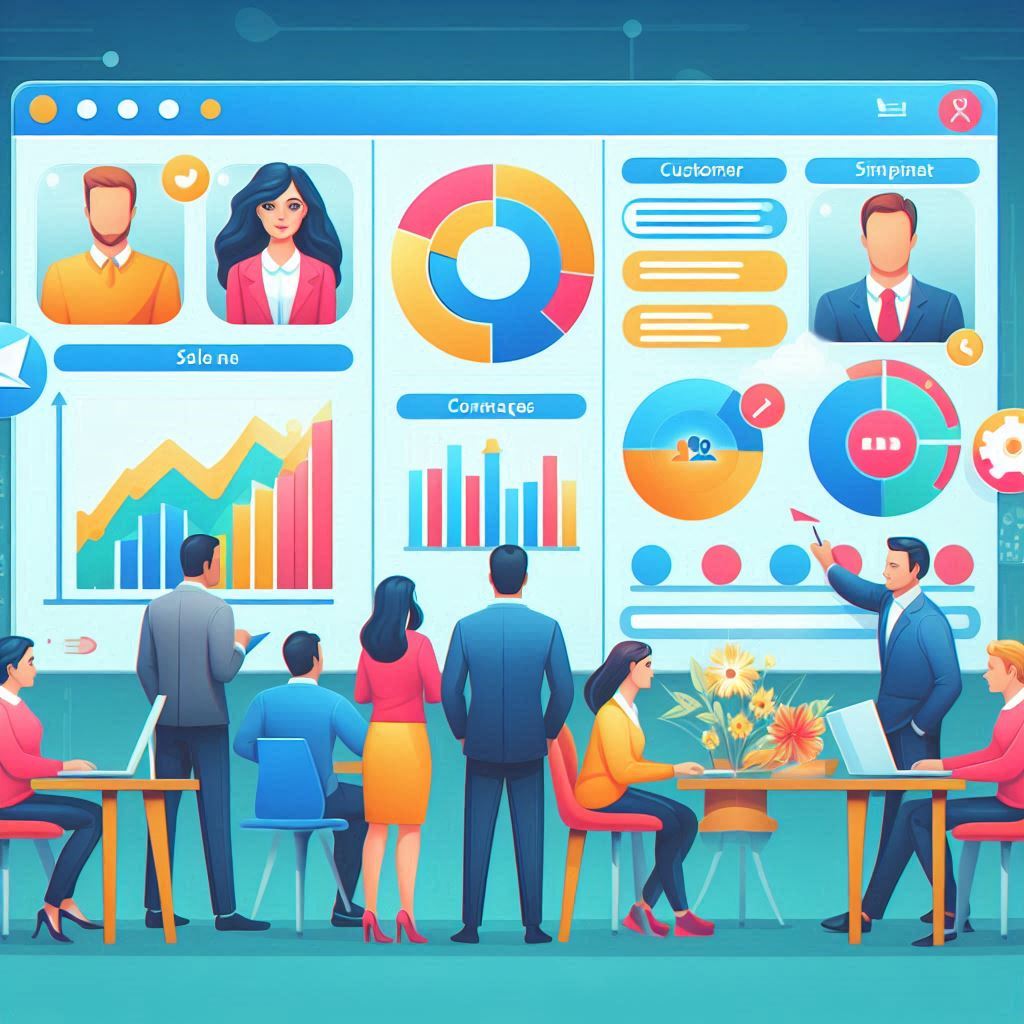What is CRM ?
CRM (Customer Relationship Management) refers to software or technology used by businesses to manage interactions with current and potential customers. The goal of CRM is to improve customer relationships, streamline processes, and increase profitability by centralizing and automating customer interactions across various touchpoints like sales, marketing, and customer service.
Key Uses of CRM:
-
Customer Data Management:
- CRM systems store and manage customer information, including contact details, communication history, purchase history, and preferences. This data helps businesses create a 360-degree view of their customers, which aids in more personalized interactions.
-
Sales Management:
- CRM is used to track leads, prospects, and sales opportunities. Sales teams can monitor the progress of deals, set reminders for follow-ups, and see which stage of the sales funnel a lead is in. The system automates routine tasks like sending emails or scheduling meetings, helping sales teams focus on closing deals.
-
Marketing Automation:
- CRM platforms often integrate with marketing tools to help businesses automate campaigns, send targeted emails, and track responses. It allows marketers to segment customers and deliver personalized content based on their preferences or behaviors, ultimately increasing the chances of conversions.
-
Customer Service & Support:
- CRM systems allow customer service teams to track customer inquiries, complaints, and requests in one place. It enables efficient ticket management, routing customer issues to the right department, and tracking the resolution process. With all customer information available, agents can provide faster and more accurate responses.
-
Task and Workflow Automation:
- CRM tools automate routine business tasks like sending follow-up emails, assigning tasks to team members, and creating reports. This reduces manual effort and ensures that teams remain on track with their customer engagement activities.
-
Analytics & Reporting:
- CRMs provide valuable insights into customer behavior, sales performance, and campaign effectiveness. Dashboards and reports generated by CRMs help businesses make data-driven decisions by identifying trends, forecasting sales, and measuring the success of marketing efforts.
-
Collaboration Across Teams:
- CRM systems facilitate collaboration among different departments by allowing access to shared customer data. For instance, sales, marketing, and customer support teams can work together with a single view of the customer, ensuring consistency in communications and service delivery.
Example of CRM Software:
Some popular CRM platforms include:
- Salesforce: A widely-used CRM for businesses of all sizes that offers a range of tools for sales, marketing, customer service, and analytics.
- HubSpot CRM: A free CRM that focuses on sales, marketing, and customer service, providing an intuitive interface for small businesses.
- Zoho CRM: An affordable option with features for sales, marketing automation, and customer support.
Benefits of Using CRM:
- Improved Customer Relationships: By storing all customer interactions and data, businesses can better understand and meet customer needs.
- Increased Sales: CRMs help track and optimize the sales process, ensuring that no lead is lost or forgotten.
- Better Customer Retention: Personalized and timely responses enhance customer satisfaction and loyalty.
- Higher Efficiency: Automation of repetitive tasks saves time and allows teams to focus on more strategic activities.
CRM systems play a crucial role in helping businesses manage their customer relationships efficiently, leading to higher customer satisfaction, improved sales performance, and better business outcomes.












.png)
